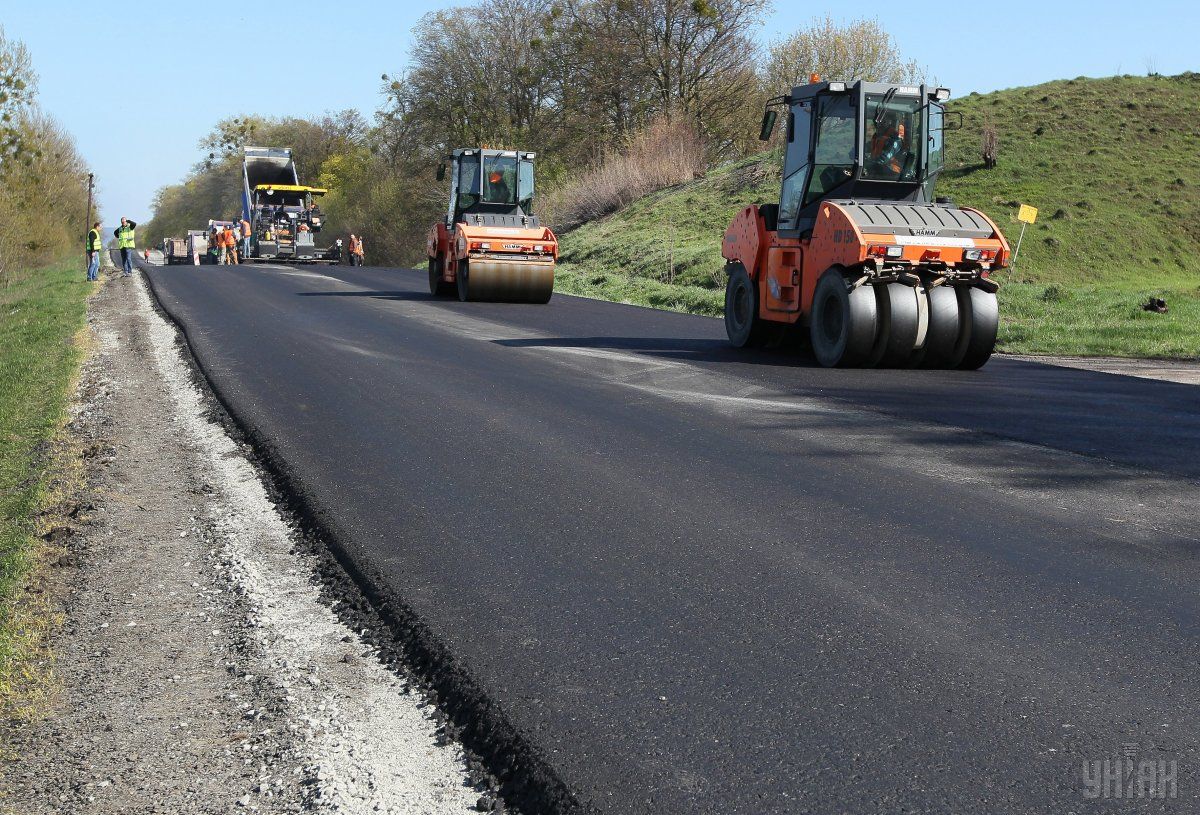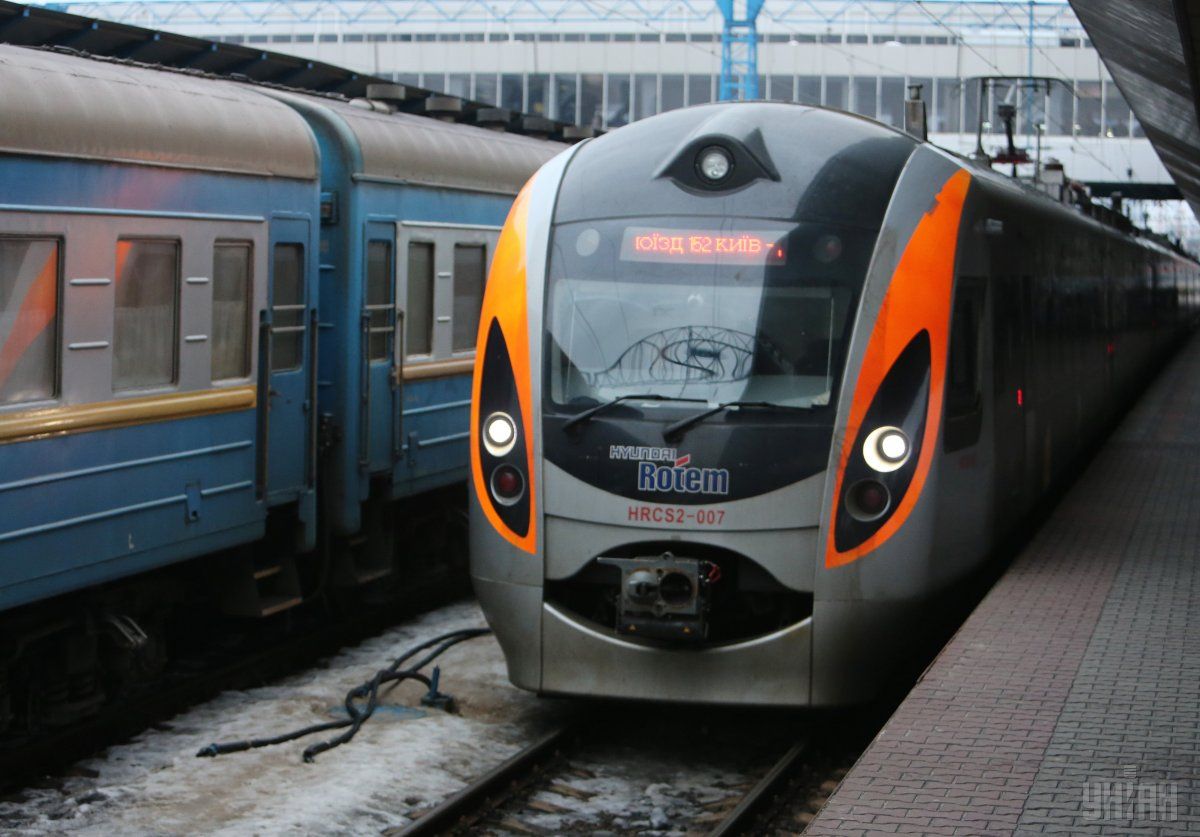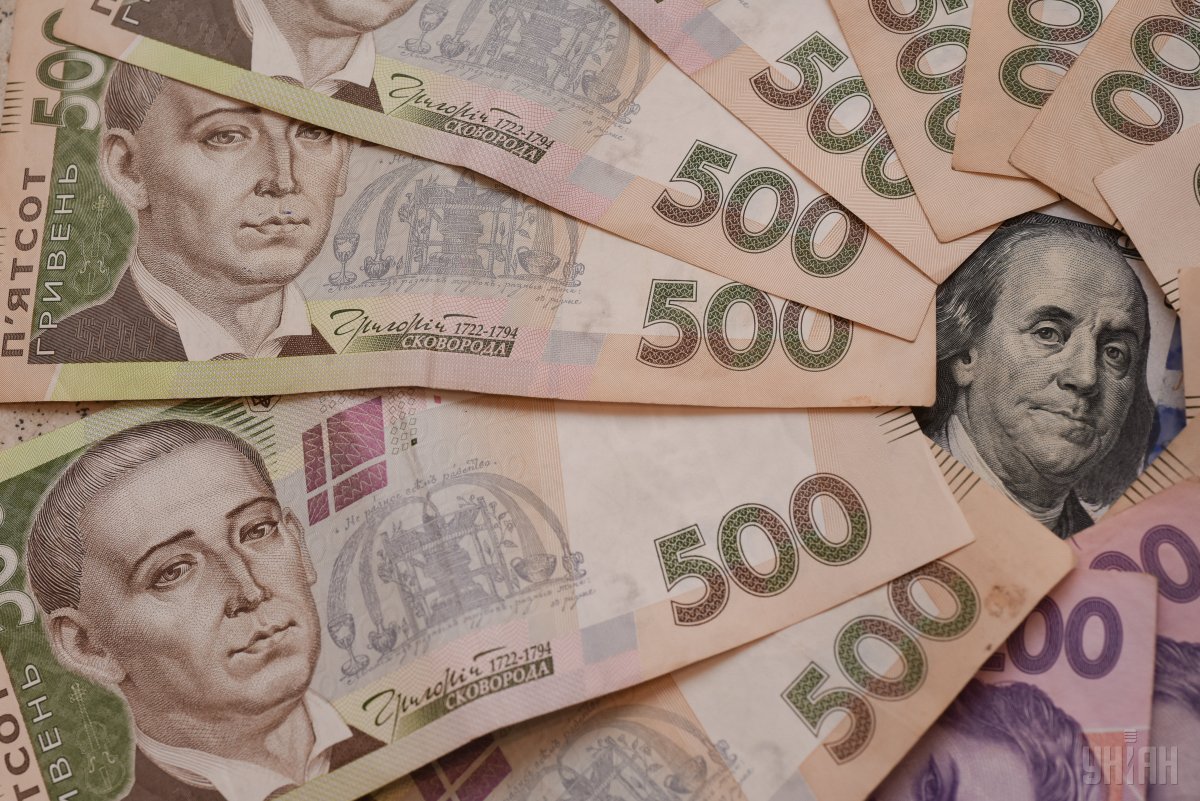
Week's balance: Start of sowing campaign and road repairs, new stage of decentralization and delay of rail ticket price hike
The agrarians started the sowing campaign that will cost them at least 10% more than last year, road repairs were launched after a long winter, Ukrzaliznytsia postponed the increase in train ticket prices, while the authorities announced a new stage of decentralization - these are the main economic news of the outgoing pre-Easter week.
This week, after strong March colds, a real spring has finally come to Ukraine, allowing farmers to begin their spring sowing campaign. The Ministry of Agrarian Policy and Food forecasts that the sowing area this year will remain at the level of last year, that's 27 million hectares. Meanwhile, the current sowing campaign, the ministry says, will cost an average of about UAH 4,000 / ha, which is about 10% higher than last year.
"Rise in price will be partly due to fuel, and partly due to seeds. All in all, little by little, we have about plus 10% to the total cost," First Deputy Minister of Agrarian Policy and Food Maksym Martyniuk told reporters.
Analyzing the situation with the ban on the export of fertilizers from Russia, the Ministry believes that prices for most of the fertilizers the farmers require for the sowing campaign did not increase, having dropped on the contrary.
"To the attention of all those who predicted a collapse, deficit, and stunning increase in prices for mineral fertilizers as a result of an increase in the import duty on products from Russia from 36% to 43%. In fact, prices for most types of fertilizers, including ammonium nitrate, in the last week not only failed to increase, they also decreased slightly," Martyniuk said.
Some 995,000 tonnes of mineral fertilizers are required for the spring works in Ukrainian fields, while agrarians are already provided with 98% of this volume.
Agrarian associations are more pessimistic in calculations. The Ukrainian Club of Agribusiness (UCAB) estimated that the cost of the spring sowing campaign in 2018 will increase by 23% y-o-y, to amount to about UAH 127 billion. In particular, according to their forecast, the increase in fertilizer costs was at 33%, fuel and lubricants - at 29% and seeds – at 17%.
The basis of spring sowing, according to UCAB, will consist of four crops, which account for 92% of all costs. Sunflower seed will cost UAH 46 billion, corn – some UAH 42 billion, soybeans – another UAH 19 billion, and another UAH 10 billion for spring barley.
Despite the rise in price of seed, the profile ministry is confident that grain exports this marketing year (MY, July 2017 - June 2018) are expected at 41 million tonnes, which is approximately the level of the previous marketing year, which yielded export revenues of $6.4 billion.
Growing export revenues, including due to the active exports of agricultural products, could not but reflect on the positions of the national currency. This week, to the joy of most Ukrainians, the hryvnia strengthened to UAH 26.01/26.04/USD, that is, by almost by 25 kopiykas within a week.
This, in turn, allowed the NBU to buy on the interbank market and replenish gold and foreign exchange reserves by more than UAH 100 million. In March, the NBU managed to replenish reserves by buying currency worth $376 million, since the beginning of the year – a total of $757 million.
Despite the active purchase of dollars by the regulator, Ukraine's international reserves over March declined by 1.2% to $18.2 billion. The main reason for that were the active payments on state debt. In particular, $562.3 million was paid on the government's eurobonds, $678.8 million – on domestic bonds in foreign currency, while another $186 million was sent to the International Monetary Fund.
Start of road repairs

In the past week, favorable spring temperatures allowed not only to start the sowing campaign, but also to launch intensive road repairs after motorways suffered significantly the snowy winter's cold snaps. The season of road works, in addition to repair and construction of new roads, provides for government-initiated inspections of quality of motorways already constructed and repaired, introduction of new road quality control standards, as well as control of truck load.
"Coordinated work at our load control stations is a fundamentally important issue. Control must be ensured. We spend billions of hryvnias on construction, and then someone loads and then overloads their vehicles, destroying roads. According to various estimates, about a half of trucks drive with violation of load norms. We must stop it," Prime Minister Volodymyr Groysman said.
In his opinion, one week of quality control on the roads will be enough to restore order. To this end, Groysman proposed to involve the Ministry of Internal Affairs to install CCTV cameras.
The head of government also noted that local authorities should provide assistance in monitoring the operation and repair of roads. At the same time, the Ministry of Infrastructure notes that today most regions have no idea how to effectively plan road repair tenders and monitor the works.
"We plan to analyze efforts in all regions, look at the positive experience of the advanced ones and advise those that are not entirely effective," the ministry said.
Officials noted that in 2018, local budgets will receive UAH250-600 million for the repair of local roads. Financing for the construction of roads this year will come from the Road Fund, which in the first quarter has already received about UAH 8 billion of the target UAH 34 billion at year-end.
"As of April 1, there is about UAH 2.6 billion in the State Treasury accounts set for roads of local importance. This is an incredible figure compared to previous years. Also, there's UAH 5.4 billion for national motorways. Thus, we are seeing that the funds are actually being transferred to the Road Fund," says the Ministry of Infrastructure, which believes that there is practically no risk of shortage of funds to the Road Fund in 2018.
The latest increase in the financing of road repairs cannot but please Ukrainians - according to experts, more than 90% of the roads across Ukraine (160,000 km of state and local roads), are maintained operated beyond the established standards. To bring them to the level of European countries, it is necessary to repair at least 10% (12,000 km) per year.
The main reason why this has not been done before is that the funds allocated were just too scarce.
Spring without train ticket price rise

This week came the reports that the increase by Ukrzaliznytsia (Ukraine Railways) of their ticket prices is being postponed. The company planned to raise the cost of transportation this year in two stages - in April by 12%, and same in October.
Now Ukrzaliznytsia officials report that the prolonged agreement of the order on the increase of prices for passenger transportation in the profile ministry with the participation of the interested departments does not allow implementing the measures planned. The company at the same time continues to insist on the need to increase passenger tariffs, which the managers say will improve service quality and safety of this yet unprofitable transportation.
"To date, the share of reimbursement by the population of rail commute costs within Ukraine does not exceed 20%. There are no budget-supported subsidies for these services," Ukrzaliznytsia says.
The company adds that the tariffs and level of cost recovery directly affect the carrier's ability to take urgent measures to maintain quality and safety of transportation, renew its rolling stock, and, consequently, improve the quality of services.
The company says in the neighboring Belarus, railway tariffs for passenger transportation on regional and interregional routes from April 1 rose 24% and 32%, respectively.
According to the carrier's calculations, to bring domestic passenger traffic to the level of break-even accounting given inflation forecasts for 2018, tariffs would have to be raised more than twofold.
Course toward decentralization and increased responsibility of regions

In the pre-Easter week, the president and government held an away meeting in Vinnytsia, dedicated to the achievements and challenges of decentralization, which began four years ago after the Revolution of Dignity. That's the topic that's been getting more and more attention in Ukraine recently and that allowed over a few years to increase threefold the revenues of local budgets - to UAH 250 billion in 2018.
Decentralization has provided local communities with a financial resource for the quality implementation of social programs, in particular, ensuring free commute to vulnerable groups and covering their basic needs.
"What is decentralization in plain words? You take the money from the central government and give it to the community. There was UAH 60 billion in local budgets when I was elected president, and now it's UAH 250 billion. And what is money, what is an additional UAH 200 billion? It's schools, kindergartens, renovated roads that have not been repaired for years, it's illumination, and it's definitely hospitals," President Petro Poroshenko said, speaking at the opening of the reconstructed anesthetic unit at a Vinnytsia children's hospital.
Poroshenko stressed that, in particular, such reconstruction was made possible thanks to decentralization, leading to funds remaining on the ground while communities receive an opportunity to implement important projects.
The Prime Minister considers it necessary to improve the efficiency of the local governance, which as a result of decentralization has received not only financial resources, but also additional powers. He stresses the need for the local governments to set priorities straight, have a strategic vision, and be accountable before the public.
Groysman added that many representatives of local authorities use additional funds inefficiently. The importance of effective investment is obvious given that a significant part of money is not utilized at all, lying deadweight in the State Treasury accounts.
This week, the government adopted a number of important decisions in the social sphere. In particular, UAH 1 billion was allocated to provide primary schools with modern teaching technologies and another UAH 386.5 million for teacher training.
Education Minister Liliya Hrynevych appealed to local authorities with a request to support schools financially and allocate funds for co-financing important projects.
"We understand that this money is not enough to provide for the entire educational space in Ukraine. Our partners are local authorities ... It is very important that they invest their money, too," Hrynevych said.
The government also reported on the results of the implementation of the Affordable Medicines program, financing of which in 2018 was increased to UAH 1 billion, and which is used by about 8 million Ukrainians. According to the Cabinet of Ministers, the program is supported by 90% of the population, and it has already proved its effectiveness - the number of ambulance calls reporting a stroke and heart attack decreased by an average of more than 4%, and bronchial asthma - by 6%.
This week, the Verkhovna Rada also had some work to do. The deputies approved in the first reading a bill on concession, important for the development of the country's economy, which will help attract investment in the social, transport, energy and housing infrastructure, preserve and modernize existing facilities and create new ones for the cost of private investors, while retaining state ownership.
"The bill provides for the possibility of applying concession in any area of economic activity, introduces a transparent procedure for initiating and deciding on the selection of concessionaires," the Ministry of Economic Development said, commenting on Parliament's decision, adding that the implementation of the law will promote economic growth and, as a result, increase the number of jobs.
In addition, the deputies ratified the agreement between Ukraine and the International Bank for Reconstruction and Development on attracting a long-term $150 mln loan for crediting small and medium-sized enterprises.
The decision will allow businesses to attract money at low interest rates, which will positively affect the growth of this economy sector.
Next week, the country is waiting for no less important economic events. The State Statistics Service will publish data on inflation in March, while the National Bank will hold a meeting of the monetary committee, which will decide the fate of the NBU's key rate in the near future.
Ksenia Obukhovska

